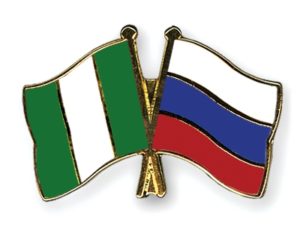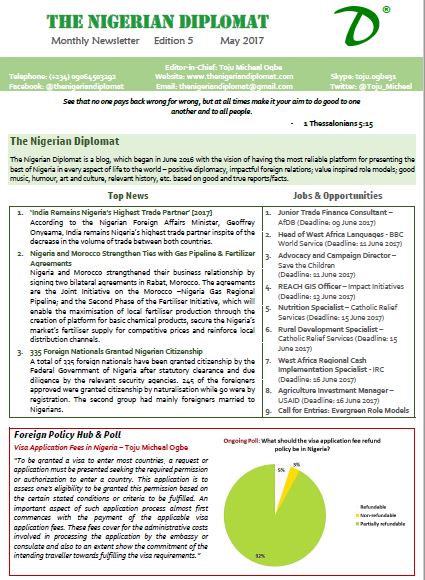Russia and Nigeria have taken steps to deepen their cooperation pertaining to the steady development of bilateral ties in political, trade, economic and humanitarian areas.

Foreign Minister of the Federal Republic of Nigeria, Mr. Geoffrey Onyeama during an official working visit to Moscow, held diplomatic talks with his counterpart Sergei Lavrov and thereafter, discussed issues pertaining to the steady development of bilateral ties. They concentrated on prospects of cooperation in the nuclear industry, hydrocarbon processing, infrastructure projects and exports of Russian industrial products to Nigeria. They further held an in-depth exchange of views on international and regional issues, focusing on countering terrorism and extremism, settling crises in Africa, primarily in the Sahara and the Sahel, and fighting pirates in the Gulf of Guinea.
Tellingly, Russian investment in Nigeria covers such areas as energy, iron and steel, and hydrocarbon. Over the years, the diplomatic relationships have also witnessed the establishment of Russia-Nigeria Business Council (RNBC) which oversees economic activities between the two countries. They also plan to step up an uncompromising fight against international terrorism that threatens national security in both countries and, objectively, the security of all countries.
Russia and Nigeria’s two-way trade figure was a modest $350 million in 2013. Authorities in both countries have repeatedly said that it should be many times larger, given that Russia is the biggest market in the former Soviet Union and Nigeria the biggest market in Africa.
The Federal Government of the Republic of Nigeria has, indeed, expressed its support for any Russian genuine and legal investment.

